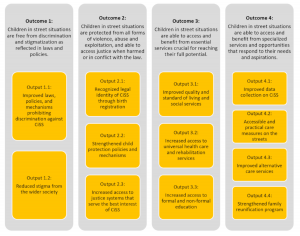CSCs partner in the Philippines, Bahay Tuluyan, has achieved a major milestone in working with the government to get a national strategy on street children passed in the Philippines.
The scale of the challenge
The government in the Philippines began a series of interventions to try and address the rising number of children on the street in the 1980s, after the martial law regime of Ferdinand Marcos.
Over the years the approaches have swung between welfare and repression, resulting in street sweeps or ‘rescues’ with a goal to remove children from public spaces with, or without, their cooperation. The lack of reliable data is a significant barrier to fully understanding the situation, but the number of children living or working on the street in Philippine cities appears to have continued to grow.
A new era
When the UN General Comment 21 was adopted in June 2017 the Philippine government responded quickly. By 2019 they had institutionalized the Sub-Committee for the Protection and Welfare of Children in Street Situations.
Our partner in the Philippines Bahay Tuluyan has been appointed as the first chair of this committee that brings together all the key national government agencies including the departments responsible for health, education, social welfare and development, local government, police, poverty reduction, youth and human rights as well as civil society organizations.
And a strategic approach
The committee has developed a national, multisectoral strategic plan for children in street situations – the first time such a plan has ever existed. Critically, the plan has been designed to respond very closely to General Comment 21 and its strong call for a rights-based approach, with 4 key outcomes:

The plan was approved on 12 October 2020 and will run from 2021 –2025.
Bahay Tuluyan is extremely proud to have led the committee through this process, with the support of the Consortium on Street Children and Red Nose Day Foundation. The journey to create this plan has not been easy and there is a lot more work to be done, but this is a significant milestone that deserves to be celebrated.